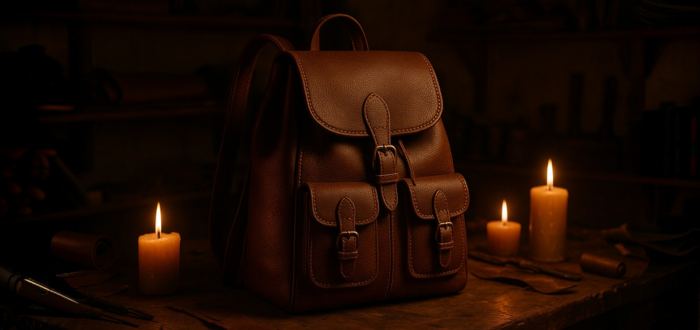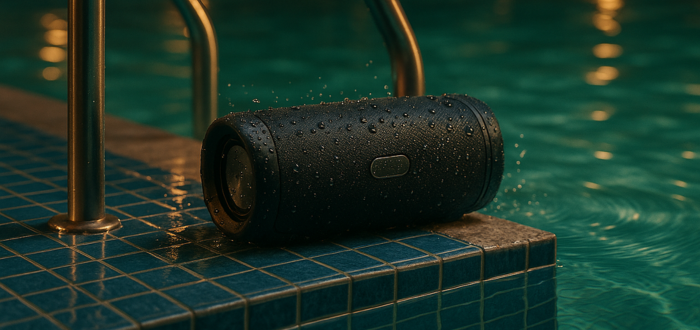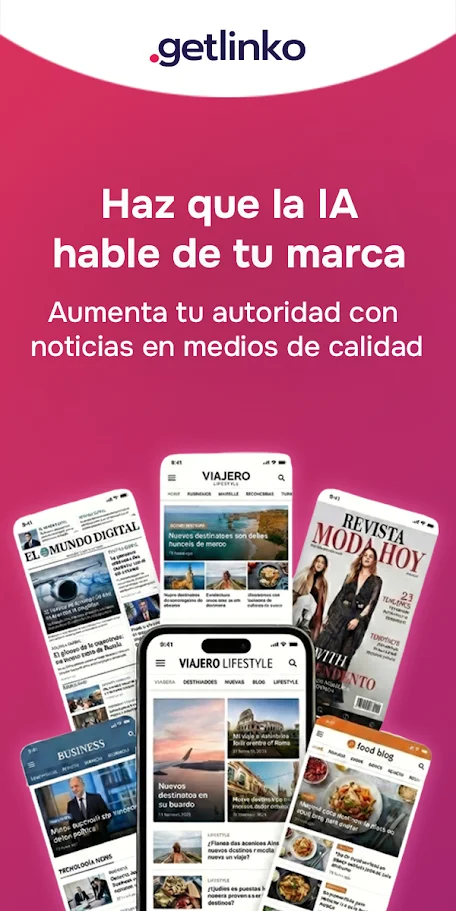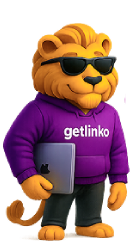Let’s be clear, in the year 2025, visuals are no longer a luxury; they are the ultimate language of the web. A great image can mean landing a client or watching them vanish in the eternal scroll. But let’s be honest, making an instant impact isn’t always easy… or cheap.
Luckily, AI is here to rewrite the rules of the game. And no, we’re not talking about lifeless AI-generated pieces, but about tools that, when given the right instructions, can create visuals that grab attention and drive sales. And yes, the secret lies in how you communicate with the machine.
In this Getlinko guide, we’ll show you how to write powerful prompts. No fluff, no hype. Forget what doesn’t work, here’s the shortcut to make your e-commerce photos truly come alive.
Tips for beginners
Before diving into creating images with artificial intelligence, it’s important to go over the basics. That’s why we’re sharing the essential practices you should always keep in mind when using generative AI:
Refine
Already have images you like? Use AI to give them a boost. Enhance quality, upscale resolution without losing sharpness, or reduce noise. Explore AI photo editing tools and make your visuals shine.
Be specific
For AI to truly understand your idea, give it all the relevant details; that’s how you get accurate results. Make use of descriptive terms to express your vision (e.g., photorealistic, illustration, vintage, pastel tones, cinematic lighting).
Filter and refine
Tell AI what you don’t want (e.g., “no blurry background” or “no people in the photo”).
Format smartly
Tailor your images for different platforms (square for Instagram, vertical for Stories, etc.), including custom dimensions (e.g., “cinematic scene 16:9”).
Explore and iterate
Don’t fear the unknown! Talk to AI gradually. Create multiple versions and tweak your prompts based on what you’re getting back.
Personalize with storytelling
Sure, you’ll need those classic product shots. But who said they had to be boring? Let’s see how to level them up:
Show, don’t just tell
Remember, we want context, emotion, depth, and sensory details. When you’re able to express these elements in words, it becomes much easier for the AI to grasp the intended aesthetic and concept.
- “A group of friends chatting in a hidden speakeasy, with liquor bottles and glowing cocktail glasses behind the bar to evoke mystery and intimacy”.
- “A gothic podcast microphone with sound waves turning into ghostly figures, the moon visible through a window”.
- “A handcrafted leather backpack in an artisanal workshop, lit by candles that highlight the intricate stitching and fine texture”.
Find your brand’s true colors
And no, we’re not talking about your brand’s color palette. What’s the essence of your brand? Playful? Minimalist? Eco-friendly? Then your prompts should reflect exactly that! For example:
- “An ethically made cotton t-shirt resting among wildflowers in a sunny meadow, emphasizing natural materials and earthy tones”.
- “A set of neutral-toned pens on a wooden desk, with an open notebook beside them, capturing elegance in a tidy office setting”.
- “A waterproof portable speaker on the steps of a pool, surrounded by soft lights, evoking durability, immersive sound, and a relaxed atmosphere”.
Don’t forget the “once upon a time…”
Here’s a big one: Every product has (and deserves) a story. Use your visual identity to drop hints or give your audience a peek into the narrative behind your brand.
- “A steaming cup of coffee in a sleek thermal container, at the top of a mountain at dawn, with a breathtaking view in the background”.
- “A doctor checking the vital signs of a newborn in a maternity ward, surrounded by warm light and cutting-edge technology, highlighting both humanity and professionalism”.
- “A pack of healthy dog snacks resting on a yellow blanket, while a golden retriever and a beagle enjoy a light nap together”.
Lifestyle in action
This approach allows your audience to visualize your products as an essential part of their daily lives and, as a result, foster a stronger connection with them:
Speak to your tribe
To start a conversation, you need to keep your audience in mind. Who exactly are you talking to? You should craft prompts that feature people and scenarios your ideal customer can relate to.
- “A diverse group of women rolling out stylish yoga mats in a spacious, sun-drenched studio”.
- “An elderly person using a tablet to video call their grandchildren in a cozy, rustic kitchen”.
- “A young couple in pajamas wearing face masks, laughing together on a chill Sunday morning”.
Trigger emotions
You need to make your product evoke a feeling. What emotions do you want people to instantly associate with it? Entertainment, comfort, security? Be sure to mention that in your prompt!
- “A woman wearing a cozy wool sweater, smiling and enjoying a book by the fireplace on a chilly night”.
- “A man running through a park at sunrise, wearing breathable and stretchy sportswear, radiating motivation, energy, and comfort”.
- “A bowl of freshly popped popcorn with a touch of salt and butter, soft drinks on the side, set on a fluffy blanket over the counter, while friends enjoy a cozy movie night in the background”.
Don’t settle for the obvious
Beyond showing your product in action, aim to highlight the experience it brings, that unique added value only your customer can feel, enjoy, and live.
- “A person lying in a hammock on the terrace, eyes closed and headphones on, fully immersed in music, while a rainbow lights up the horizon”.
- “A gamer wearing VR goggles, battling through a galactic war, navigating a cosmic universe with intense effects keeping their pulse racing”.
- “A family of three building a cheerful snowman in festive clothing, each wearing colorful winter hats that match their personalities”.
Original experimentation
Time to get creative! Artificial Intelligence is only limited by how bold and imaginative you can be, so it’s worth looking at things from a fresh angle, even exploring quirky and unconventional ideas:
Abstract interpretations
Want to highlight what makes your product amazing and why it outshines the competition? Try an abstract and indirect image. For a quick-drying fabric: “Dynamic, wavy lines in blue and white, suggesting movement and evaporation, subtly showcasing the fabric’s quick-dry properties”.
Surreal and dreamlike scenes
Step into a filmmaker’s shoes and let your imaginative eye design visuals that are unforgettable: “A stack of books floating in a calm, cloudy sky, symbolizing the infinite possibilities of knowledge”. Perfect for an online bookstore, perhaps?
Playing with perception
Use prompts that emphasize both visual and tactile appeal. For a luxurious skincare line: “A close-up of glistening drops of golden serum on smooth, radiant skin, with a soft, diffused tone that highlights the moisturizing feel upon contact”.
The future is graphic (and clever)!
AI image generation is here to expand human creativity, not replace it. It’s about removing obstacles and empowering businesses to create stunning content that reflects their personality and truly resonates with viewers. According to What’s the Big Data, around 34 million AI-generated images were created per day in 2024, and that number is expected to keep rising in 2025.
That said, we invite you to put these tips into action and dive fully into the art of prompt creation for your e-commerce visuals. Your brand’s visual story is just about to hit its prime!













